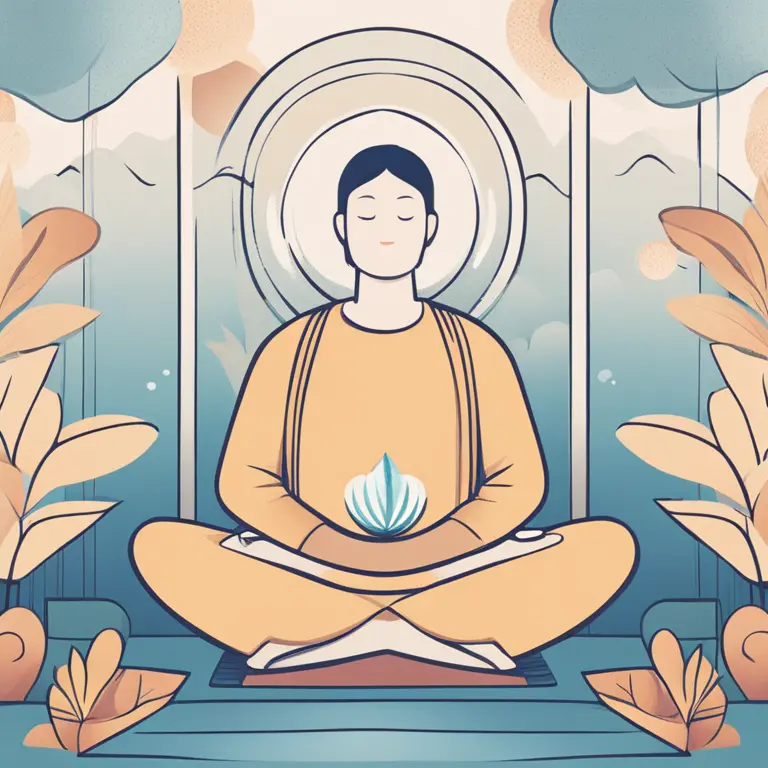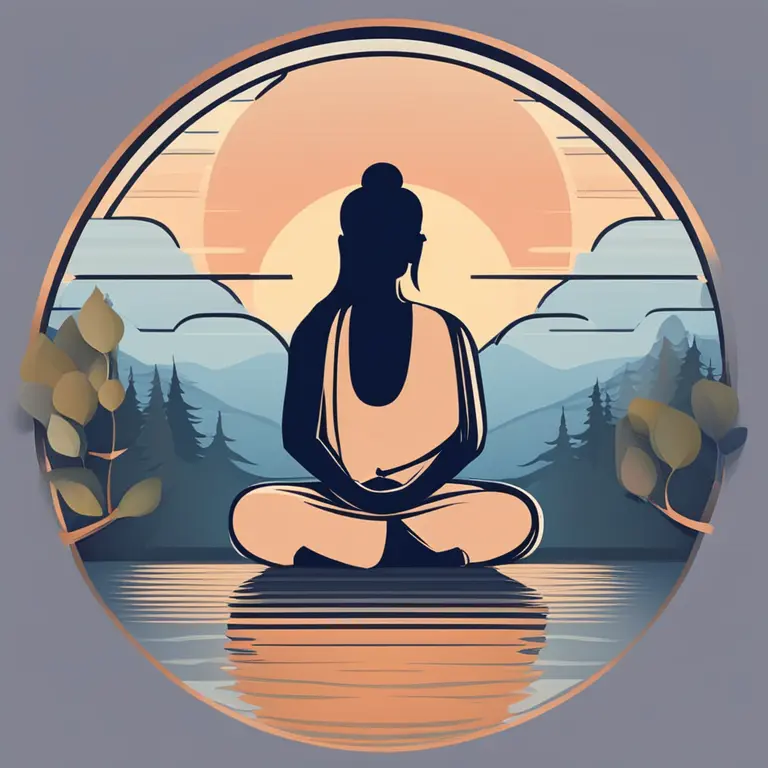
Calming the Mind: Meditation Tactics for Anxiety Relief
Discover effective meditation techniques designed to alleviate anxiety and promote inner calm in our comprehensive guide.
article by Hina Kurosawa
A Brief Introduction to Meditation and Anxiety
Meditation, once seen as an esoteric practice, has now been widely embraced for its myriad health benefits, especially for combating anxiety. Chronic anxiety affects millions worldwide, influencing their quality of life and well-being. The modern focus on mindfulness and wellness has shed light on meditation as a practical tool for anxiety management. As healthcare professionals recognize its significance, meditation finds its place alongside conventional treatments for anxiety disorders. The practice's adaptability means that there's an approach suitable for everyone, whether you're a meditation novice or well-versed in the discipline.

Starting Simple: Mindfulness Meditation
Mindfulness meditation is a cornerstone technique for anxiety relief, emphasizing present-moment awareness without judgment. By focusing on your breath or bodily sensations, you train your mind to observe thoughts without becoming entangled in them. This can be particularly powerful for anxiety sufferers, where racing thoughts and worries are common. Over time, mindfulness encourages a mental resilience that helps mitigate anxiety. Beginners should start with short, daily sessions of 5 to 10 minutes to cultivate this habit and gradually extend their practice as comfort and concentration improve.

Guided Imagery for Grounding
Guided imagery is another effective approach wherein you're led through a visualization of calming scenes or experiences. This meditation technique aims to leverage your mind’s ability to imagine in order to bring about a state of relaxation and reduce anxiety levels. For those who struggle with maintaining focus or have busy minds, guided imagery provides a structured mental pathway to peace. Many apps and online platforms offer guided sessions that can transport you to serene settings, helping anchor your mind away from anxious thoughts.

Body Scan for a Full Release
The Body Scan is a meditation practice that involves paying close attention to various parts of your body, noticing any sensations or tensions, and gently breathing through them to achieve relaxation. This technique is especially useful for those who experience anxiety physically, manifesting as muscle tension or restlessness. Starting from the toes and moving upwards, you methodically focus on relaxing each body part. A body scan can be performed lying down or sitting and serves as a powerful routine for unwinding before sleep or at any moment of heightened stress.

Utilizing Movement with Walking Meditation
Not all meditation requires stillness. Walking meditation involves taking slow, deliberate steps while maintaining mindfulness. It allows an individual to combine physical activity with mental relaxation, which can be particularly beneficial for those who find sitting still exacerbates their anxiety. This practice invites you to engage with your environment, observing the sensations of movement, and fostering a moving harmony between your inner and outer worlds. As you walk, your focus shifts between the rhythm of your steps and the details of your surroundings, engendering a unique sense of calm.
Mantra Meditation to Quiet the Mind
Mantra meditation focuses on the repetition of a word or phrase, referred to as a mantra. This method is useful in anxiety management as it provides a specific focus that helps avoid distraction by intrusive thoughts. By repeating the mantra, you can cultivate a sense of peace and tranquility. The repetition has a hypnotic effect, calming the mind and reducing stress. Whether whispered, spoken, or chanted silently within, the vibration of the mantra can serve as a grounding tool, bringing you back to the present and away from worry.
Progressive Muscle Relaxation (PMR)
PMR is a relaxation technique that combines tension and relaxation to create a state of deep restfulness that can alleviate anxiety. By intentionally tensing and then relaxing each muscle group, you become more aware of physical sensations and can more easily release stored tension. This practice not only helps in identifying areas that hold stress but also effectively trains the body to recognize and initiate relaxation—often leading to reductions in anxiety symptoms and improved sleep.
Published: 2/12/2024
Modified: 2/12/2024
More predictions
Come back here soon to learn more about yourself and your future


Meditation: From Turmoil To Tranquility
James lived in the heart of the bustling city, surrounded by skyscrapers that seemed to touch the heavens and streets that never slept. Every morning, as the city roared to life, so did the storm inside James. A whirlwind of thoughts, worries, and fears that left him feeling trapped in his own mind. Deadlines, bills, relationship woes - the list seemed endless, and the weight of the world pressed heavily on his shoulders.


The Serenity of Meditation Music: An Ethereal Journey
Discover how meditation music can enhance your spiritual practices, support stress relief, and align with astrological energies for a harmonious life.


The Impact of Meditation
Delve into the heart of meditation and its profound impact on mind, body, and spirit in our fast-paced world.